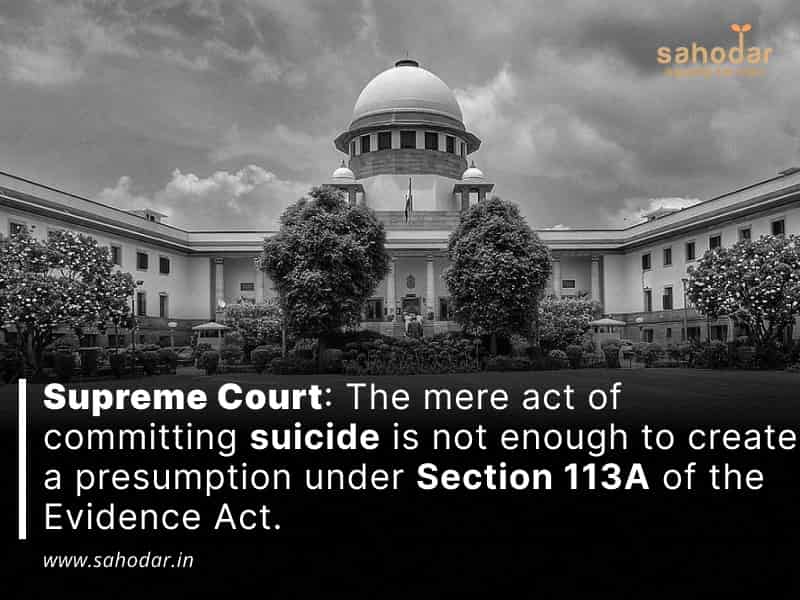The Supreme Court stated that committing suicide alone is not a sufficient evidence to presume guilt under Section 113A of the Evidence Act or to convict someone of abetting suicide under Section 306 IPC.
In the appeal before the court, the question was whether the prosecution had proven beyond a reasonable doubt that the accused was guilty of abetting suicide under Section 306 read with Section 34 of IPC.
The court stated that to convict someone under Section 306 IPC, it must be established that the death was a suicide and that the accused had abetted the suicide as defined in Section 107 of IPC.
After examining the evidence, the court found that there was no evidence to suggest that the accused had instigated or intentionally aided the deceased to commit suicide or had committed any abetment as defined under Section 107 of the IPC.
The bench of Justices Ajay Rastogi and Bela M Trivedi noted that while Section 113A of the Evidence Act allows for a presumption of abetment of suicide by a woman’s husband or relative if the woman committed suicide within seven years of marriage and was subjected to cruelty, the mere fact of suicide is not enough to raise such a presumption or to find the accused guilty under Section 306 IPC.
Source: https://www.livelaw.in/top-stories/supreme-court-113a-evidence-act-suicide-presumption-kashibai-vs-state-of-karnataka-2023-livelaw-sc-149-222778

